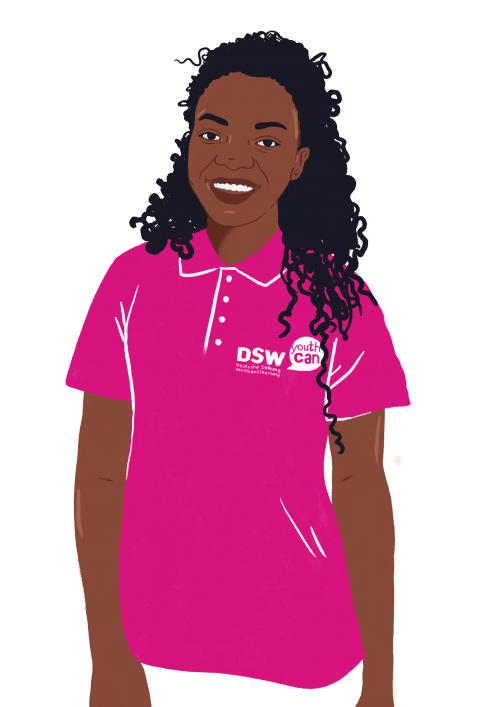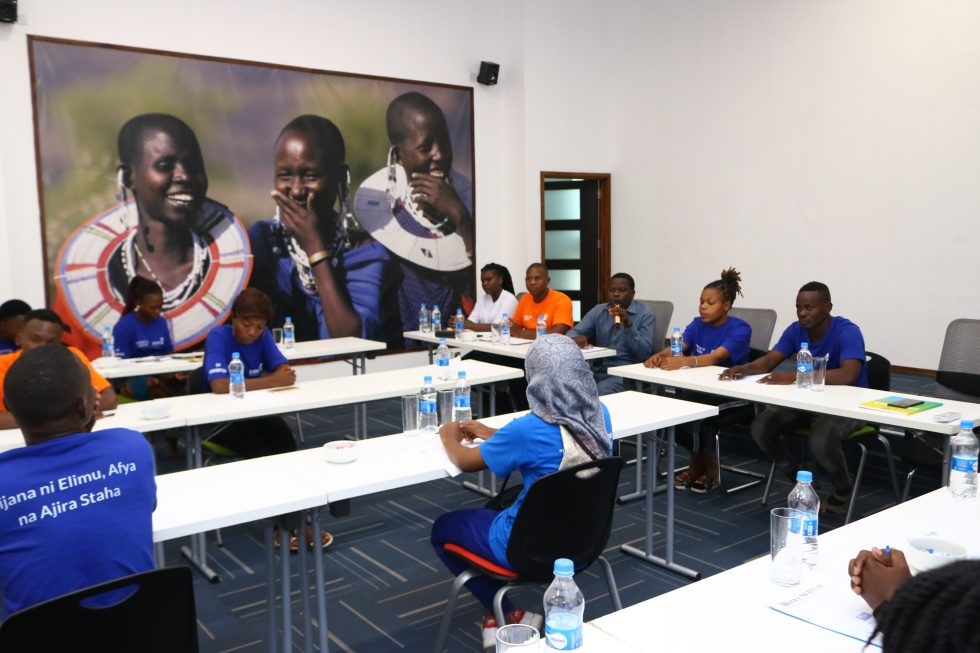I am Habiba Saidi Mtamba, a DSW Youth Advocate from southern Tanzania. Today, on World Menstrual Hygiene Day, I want to share my experience of some of the challenges that I faced and that other girls in Tanzania face during their menstrual cycle.
Today, there are approximately 29 million women in Tanzania, many of whom are young women. Talking about menstruation hygiene in Tanzania is a complex issue, because of the many challenges that young women face during their menstrual cycle. I believe every woman deserves the information and care to be able to manage their menstruation with dignity. The following are challenges that girls in Tanzania are experiencing during their menstrual period, especially in rural areas.
Inadequate sanitary pads and towels.
Many girls in Tanzania lack access to absorbent towels, which makes them feel uncomfortable when they are on their period, hence they end up staying at home until it ends. This means that many girls who face this situation, particularly in rural Tanzania miss out on their education, and are made to feel ashamed.
Lack of understanding.
Many girls of school age think it is shameful to share a class with men when they are menstruating, due to fear of teasing and worry of embarrassment from menstrual leakage. Again, this leads to them deciding to stay at home and leads to poor performance in school.
Poor privacy at school toilets.
Many of the school toilets in Tanzania have poor privacy, either because of mixed gender washrooms or small, cramped toilets that make it difficult and uncomfortable for girls to change their pads.
There are many solutions that could help to reduce some of these challenges that girls are facing. Some of them are as follows
Girls and boys need more education concerning menstruation.
If girls better understand menstruation, how their body changes and menstrual hygiene they will be able to be confident and comfortable. For instance, some girls feel like they smell when they are on their period, which isn’t true. Education can help to break myths and put an end to the stigma.
The Government should put a system in place that distributes sanitary towels in all schools.
Providing sanitary pads for girls can help to improve their school attendance, which, in turn, means there is a higher chance that they are able to fulfill their potential and contribute to our society and economy.
I hope that with joint action, through education and better provisioning, we can create a world where every woman and girl, in Tanzania and across the world can live a life free of stigma.
 Habiba is a DSW Youth Champion, originally from Songea Region in Southern Tanzania. Habiba is very passionate about community action and volunteerism, especially on issues related to health and environment. She has been active with student organisations, on environmental topics and supporting students with life skills, health, volunteerism and leadership. In the future, Habiba is looking forward to continuing to perform community action, especially sensitising and training fellow youth on health, environmental and entrepreneurship issues.
Habiba is a DSW Youth Champion, originally from Songea Region in Southern Tanzania. Habiba is very passionate about community action and volunteerism, especially on issues related to health and environment. She has been active with student organisations, on environmental topics and supporting students with life skills, health, volunteerism and leadership. In the future, Habiba is looking forward to continuing to perform community action, especially sensitising and training fellow youth on health, environmental and entrepreneurship issues.
Photo: Taken during a DSW meeting concerning SRHR education, January 2021.

